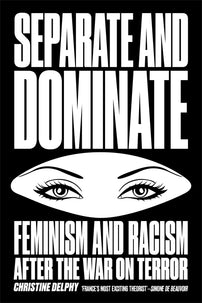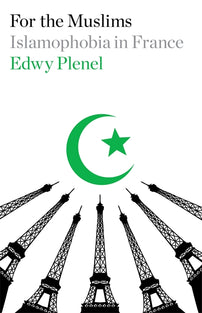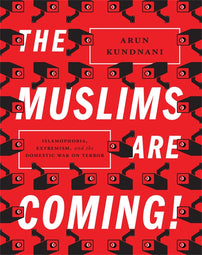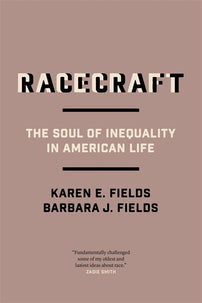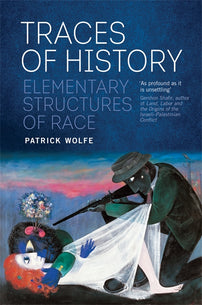Toward Emancipation, Against Character Assassination: In support of Houria Bouteldja and political anti-racism
Attacks against Houria Bouteldja are aimed against political anti-racism as a whole, which is to say any attempt to organise and fight to put an end to oppression.

This letter, signed by twenty French writers and academics, was published in Le Monde on June 19. Translated by David Broder.
In the 10 June "ideas" supplement, Jean Birnbaum devotes an article to the "growing malaise in the social movements" faced with "the militant use of notions like 'race' and 'Islamophobia.'" The article relates the remarks made here and there with regard to the Parti des Indigènes de la République and, beyond that, with regard to decolonial and political anti-racism. In these allusions, we see that once again Houria Bouteldja is the priority target of the most senseless of accusations. This is all just so much character assassination: she is accused of racism, anti-semitism, homophobia… It is decidedly apparent that her detractors have not read her book Les Blancs, les Juifs et nous (‘Whites, Jews and us: Toward a Politics of Revolutionary Love," La Fabrique, 2016 forthcoming from Semiotext(e) in Spetmeber 2017), and that they have stopped at reading the title, without understanding it, or at most a few misrepresented citations.
Pap Ndiaye’s 2008 book La Condition noire ("The Black condition," published by Calmann-Lévy) did not provoke such a venomous flow of ink. On the contrary, he was held up as the intellectual force of the moment. He showed that skin colour constitutes a factor for differentiation, for social disqualification and discrimination in our societies. He thus contributed to articulating class and race, after decades characterised by the illegitimacy of this subject. Could the warm welcome reserved for Pap Ndiaye in the media perhaps be explained by the fact that he was talking about Black people? But if there are Black people, that necessarily means that there are also white people. Whites rarely want to be named as such, and they have no intention of seeing what this mirror reflects back at them. These are indeed just historical and social constructs, but they do carry a lot of weight. Ignoring them stops us fighting them. The amount of melanin in our skin — however ludicrous or arbitrary this may be — our origins, our cultures, our religions (or irreligions), and the long history of colonisation, all create privileges and relations of domination, conscious or otherwise. Houria Bouteldja states it plainly: "One’s social level being equal, it is always better to be white."
In her important, complex book, pulled in multiple directions, Houria Bouteldja evokes her own internal rifts as both an indigène and a white woman, or more precisely a "whitened" one. Poets and writers have already said this before her, from Damas to Césaire, Fanon and so many others. With some reserve she refers to her feeling of humiliation, faced with her "too poor, too immigrant" parents; our shame is that such shame is even possible. Her attachment to the Maghreb is related back to the Jewish people who once lived there, whose absence now creates a vacuum that is impossible to fill: something that leaves the author "inconsolable." And yet her detractors chain together pieces of nonsense, like a poisoned necklace. While we do not identify with all of her arguments and all of her positions, we consider this frenzy against Houria Bouteldja intolerable.
Political anti-racism is not at all reducible to Houria Bouteldja, and its representatives can sometimes disagree with this or that choice of hers. But the violence of the attacks with her in their sights is also aimed against political anti-racism as a whole, which is to say any attempt to organise and fight to put an end to oppression. The hatred that Houria Bouteldja arouses is commensurate with her courage. The courage to shake up our worthy consciences when we prefer to forget what we gain from being whites, here in the West. The courage to evoke racialised women’s day-to-day fight and decolonial feminists’ struggle. A resolute and indefinite refusal to fall into the essentialism of the "indigenous man," which so opportunely masks the violence everywhere done to women throughout our societies.
Certainly this is no substitution of the racial question for the social question: it is a cross-fertilisation, an intersection, as the social sciences call it. No struggle is secondary: we need a united front. And that proceeds via the recognition of all oppressions. In Houria Bouteldja’s book, "Vers une politique de l’amour révolutionnaire" ("Toward a Politics of Revolutionary Love") is not just a vamped-up subtitle or a whim of the editor’s; rather, it is a resounding appeal to break out of our exclusivisms, to abandon our separations and our barriers. How can anyone not see that this is exactly the opposite of a war? The author addresses proletarians, peasants, the unemployed, those who fall through the cracks, the "sacrificed of the Europe of markets and the state." She turns to the Left, and in particular the radical Left that aspires to a whole other world. She wants to make a common front. Finally, she appeals to a denationalised and deracialised history: as CLR James wrote of his forebears when he, too, addressed whites, "These are my ancestors, these are my people. They are yours too if you want them." Such a thought, which works at the existing categories the better to be able to escape from them, is ahead of its time, out of step with its own era. It disturbs, shocks, angers whoever wants to read things too quickly and issue sentences that cannot be appealed. This is not the first time that such a temporal discordance has been at work: revolutionaries, Marxists, libertarians, and feminists have all had the experience of this. This struggle means unburdening ourselves of our categories; and it is a struggle that begins with our becoming conscious. That is the price to pay for our emancipation.
By Ludivine Bantigny (historian), Maxime Benatouil (co-president of the Union juive française pour la paix), Judith Bernard (producer and journalist), Déborah Cohen (historian), Christine Delphy (feminist militant and sociologist), Annie Ernaux (writer), Fabrice Flipo (philosopher), Isabelle Garo (philosopher), Eric Hazan (editor and writer), Stathis Kouvelakis (philosopher), Philippe Marlière (political scientist), Dominique Natanson (co-president of the Union juive française pour la paix), Olivier Neveux (university lecturer), Ugo Palheta (sociologist), Geneviève Rail (university lecturer, Simone de Beauvoir Institute and Womens Studies, Canada), Catherine Samary (economist), Michèle Sibony (Union juive française pour la paix), Isabelle Stengers (philosopher), Julien Théry (historian), Rémy Toulouse (editor).
[book-strip index="1" style="display"]